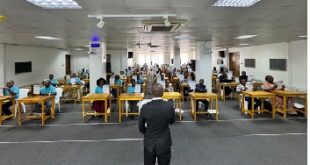20th Feb 2025: Australia and India have cultivated a robust partnership, reinforced by strategic and economic agreements such as the Comprehensive Strategic Partnership (CSP) established in 2020 and the India-Australia Economic Cooperation and Trade Agreement (ECTA) signed in 2022. In 2021, this collaboration extended into the space sector with the signing of a Memorandum of Understanding (MoU) between the Australian Space Agency and the Indian Space Research Organisation (ISRO), aiming to enhance cooperation in civil space activities. This partnership was further strengthened at the Bengaluru Space Expo 2024, where a high-level roundtable discussion was held in the presence of Dr. Pawan Goenka, Chairman of IN-SPACe, and Mr. Enrico Palermo, Head of the Australian Space Agency. The discussions led to SIA-India and SIA-Australia taking a proactive step to advance industry-level dialogue, identifying key barriers to trade and collaboration in the India-Australia space sector while proposing actionable solutions for government agencies.
Building on these deliberations, PRISM (Perspectives on Regulatory Issues in Strategic Markets) 2.0 | Unlocking Trade Potential in India-Australia Space Collaboration—a jointly organized webinar by SIA-India and SIA-Australia—was held on Thursday, February 20, 2025. The event served as a dedicated platform to address critical regulatory and market challenges, fostering an environment conducive to collaboration, innovation, and trade in the space and dual-use sectors.
PRISM is a flagship initiative by SIA-India aimed at addressing trade barriers and enhancing collaboration in strategic sectors, including space and dual-use technologies. The initiative focuses on fostering business-to-business (B2B) partnerships, enabling cross-border innovation, and streamlining regulatory frameworks to facilitate seamless cooperation.
The inaugural edition, PRISM 1.0, was held in November 2024 between India and the United States under the theme Navigating the Indo-US Export Control Regime. The discussion focused on overcoming complex regulatory challenges in defence, space, and dual-use technologies, laying the groundwork for deeper industry engagement and policy alignment.
PRISM 2.0 advanced India-Australia space collaboration by bringing together industry leaders, startups, and policymakers to address export controls, technology transfer, and R&D cooperation, fostering regulatory alignment and strategic partnerships. The event featured an esteemed lineup of speakers, including Dr. Vinod Kumar, Director, Promotion Directorate, IN-SPACe; Mr. David Gottlieb, Department of Foreign Affairs and Trade, Australia; Fmr. Amb. Anil Wadhwa, Distinguished Fellow, Vivekananda International Foundation; Mr. Nathan Davis, Trade Commissioner to India, Austrade; Lisa Vitaris, Interim CEO & Director, IAC 2025; Mr. Mark Ramsey, Space Machines Company; Mr. Shireesh Pallikonda, Co-Founder, Skyroot Aerospace; Mr. Ashok GV, Partner, Factum Law; Dreosti Julia, Partner, Clifford Chance; wherein Lisa Vitaris, Interim CEO (SIAA), Anil Prakash, DG SIA-India, and Rajeev Gambhir Dy DG from SIA-India were webinar moderators.
The discussions, centered on three key themes: Export Controls, Bilateral R&D Investments, and Intellectual Property Protections. They underscored India’s advancements in space exploration and Australia’s strategic advantage for equatorial and polar launches. With over 30 agreements already in place, the strengthening India-Australia partnership is set to drive innovation and expand opportunities for both nations’ thriving startup ecosystems.
Beyond regulatory alignment, collaboration extends to mission support, with Australia playing a key role in India’s Gaganyaan mission. Australia’s support for India’s Gaganyaan mission, particularly in astronaut recovery operations, further reinforces collaboration. Australia’s support for India’s 1st Gaganyaan mission includes providing critical tracking and recovery operations through its Cocos (Keeling) Islands ground station. The Australian authorities are working with Indian authorities to ensure support for search and rescue of crew and recovery of crew module as part of contingency planning for ascent phase aborts near Australian waters.
India’s space industry, valued at $8.6 billion, is set to grow at a 16% CAGR, reaching $44 billion by 2033. The space-tech startup ecosystem has expanded over 200% in the past five years, with 190+ startups attracting over $300 million in private investment in 2023 alone.
Australia’s space sector, growing at 7% annually, has seen its workforce expand by 30% in five years, reaching 17,000 professionals across 600+ organizations.
India and Australia can unlock greater export opportunities by leveraging Australia’s expertise in navigating ITAR (International Traffic in Arms Regulations) and EAR (Export Administration Regulations) for Indian exports. Under ECTA, over 96% of Indian exports to Australia now receive preferential access, benefiting satellite hardware, ground stations, and software services.
Experts highlighted the need for stronger contractual risk management in cross-border collaborations, emphasizing that FDI liberalization can unlock new national security space initiatives. The QUAD Space Working Group’s role in Maritime Domain Awareness and satellite data-sharing was also underscored.
There is a need to integrate India’s cost-effective space launches with Australia’s expertise in space tracking and infrastructure development. Key priorities include harmonizing IP laws, establishing mutual certification frameworks to streamline export controls and security protocols, and implementing dispute resolution mechanisms for smoother business engagements. Additionally, the annual termination clause in the India-Australia Bilateral Investment Treaty underscores the urgency of creating robust frameworks to safeguard cross-border investments.
Furthermore, investment avenues highlighted Space Maitri Program, Australia-India Business Exchange, Australia-India Innovation Tech Challenge, Australia-India Strategic Research Fund, and the $18 million investment in collaborative space projects as part of the International Space Investment [ISI] Initiative India Project program.
“PRISM 2.0 reinforced India-Australia collaboration, fostering innovation, trade, and policy alignment. As India and Australia deepen space ties, the next phase of cooperation will focus on aligning regulatory frameworks, enhancing investment flows, and leveraging mutual strengths for global space leadership” said Anil Prakash, Director General, SIA India.
A report on PRISM 2.0 India Australia Space dialogue will be released shortly , which will be shared among the space business community and policy maker of the two countries to sensitized with the issues to streamline and enhance the cooperation among the two countries .
Building on this momentum, SIA-India plans to expand the PRISM webinar series with dialogues involving Japan, France, and Germany, culminating in a QUAD-focused event at the India Space Congress 2025, scheduled for June 25-27.
SIA-India: SIA-India is a dynamic, not-for-profit space sector association, dedicated to advancing sectoral interests, accelerating industry growth, and catalysing collaboration through strategic engagements with key governmental and global stakeholders, policymakers, regulatory bodies, and standardisation entities, aiming to create a vibrant and innovative ecosystem within the civil, commercial and defence space domains.
 Newspatrolling.com News cum Content Syndication Portal Online
Newspatrolling.com News cum Content Syndication Portal Online







